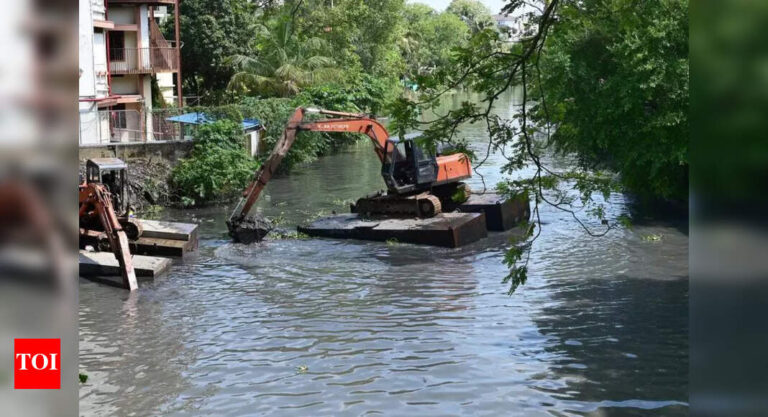Tragic Death of AI Engineer Raises Alarming Questions About Toxic Work Culture at Krutrim
Tragic Death of AI Engineer Raises Concerns Over Workplace Culture at Bengaluru Tech Firm
The recent discovery of the body of Nikhil Somwanshi, a 25-year-old machine learning engineer at Krutrim, an artificial intelligence firm owned by ride-hailing app Ola, has sent shockwaves through the tech community in Bengaluru. Found in Agara Lake on May 8, his untimely demise has sparked a myriad of allegations about a toxic work environment and an exploitative managerial style that may have contributed to his tragic end.
Background of the Case
Somwanshi had joined Krutrim in August 2024, fresh off a remarkable academic career at the Indian Institute of Science (IISc), where he graduated with a stellar 9.30 GPA. Reports indicate that soon after his arrival, he found himself shouldering an excessive workload left by former colleagues who had resigned, reportedly due to the oppressive management style of US-based manager Rajkiran Panuganti.
According to an anonymous Reddit post from an employee using the handle ‘Kirgawakutzo’, Panuganti allegedly employed "traumatic" language aimed at new recruits, creating a hostile work environment that led to a mass exodus of team members. The company has stated that Somwanshi was on authorized leave at the time of his death and had communicated his need for rest to his manager prior to his disappearance.
Allegations of a Toxic Work Environment
Beneath the surface of this tragedy lies a deeper narrative regarding workplace culture in the tech industry. Former employees have stepped forward to corroborate claims of a toxic environment at Krutrim. They describe a manager with a longstanding reputation for demeaning behavior, often belittling junior staff and labeling them as incompetent.
Key allegations raised include:
- Aggressive Management Style: Employees report that Panuganti routinely shouted at staff members and displayed a lack of empathy for their well-being.
- High Employee Turnover: Multiple resignations from the team were attributed to the intense pressure and hostile climate within the office.
- Negative Impact on Mental Health: A former employee recounted feeling suicidal due to the harsh work conditions before ultimately resigning without another job lined up.
Moreover, a report from Financial Express quoted another ex-employee, asserting that Panuganti’s "verbal abuse in meetings was traumatic," hinting at a pervasive culture of fear and distress among workers.
A Broader Issue in Tech Workplaces
Somwanshi’s death has drawn comparisons to other tragic incidents within the tech industry. For instance, the case of Anna Sebastian, a 26-year-old employee at Ernst & Young, who suffered a cardiac arrest attributed to job stress, as mentioned by her family. Similarly, another case involved a 42-year-old Bajaj Finance employee who died by suicide, leaving a note that held workplace pressures and superiors accountable for his plight.
These incidents highlight a growing concern regarding mental health in high-pressure work environments. Recent studies have shown that the tech industry often prioritizes productivity and results over employee welfare, leading to unhealthy work conditions that can precipitate mental health crises.
The Response from Krutrim and Beyond
Following Somwanshi’s death, Krutrim released a statement expressing their heartbreak and confirming that they are cooperating with authorities during the investigation. The company emphasized that Somwanshi had been on approved leave and had communicated his need for additional rest, suggesting they were responsive to his wellbeing.
However, the external reactions have been mixed. Some former employees remain vocal regarding their experiences and continue to express concerns over managerial practices at the firm. They argue that without significant systemic changes, future incidents could be inevitable.
Conclusion: The Call for Change
The tragic events surrounding Nikhil Somwanshi’s death call for deeper examination and urgent reform within the tech industry’s workplace culture. As companies increasingly grapple with the consequences of a toxic environment, it is essential to prioritize mental health and adopt healthier management practices that foster supportive workplaces.
With reports of growing dissatisfaction and the highly scrutinized nature of the tech sector, this incident underlines a dire need for industry-wide conversations about mental health support, managerial accountability, and workplace culture. The hope is that by shining a light on these issues, future tragedies can be prevented, and a more supportive environment can be cultivated for all employees.





